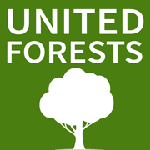
Crowdsourcing via SMS service by united-forests
 Natasha Udu-gama Dec 30, 2014 02:22 |
Hi Nicolash,
Thank you for your proposal. Have you had experience adapting ecological calendars in this manner? Would it require all farmers to have a mobile or a few representatives? How would you encourage farmers to interact? What might the incentives be?
|
 Nicolas Hess Dec 31, 2014 09:57 | Proposal contributor
Hi Natashau,
thanks for your questions.I have experience in developing decision support systems as well as Analytic Hierarchy Process (AHP) development in connection with Web-GIS or remote sensing. As I understand this topic of adapting ecological calendars, it can be viewed as a location based service/knowledge which is in some constant change (climate change). Therefore the communication with farmers has to be in two ways - gathering information of key indicators and getting informations via a decision support system that adapts to changing climate.
My observations in the himalayan mountains or the taklamakan desert as well as rural Gambia show that there is always a good enough network to send and receive some SMS. Also it seems that everybody has a mobile now a days.
Farmers who use this system have a clear advantage, they can make informed decisions, and may have a better yield.
To encourage farmers some payment per SMS can be provided - like one free SMS per Information SMS. Or some gambling component has to be integrated, some betting on a key indicator - Like: "who knows most exactly the flowering time of key indicator X in valley Y can be part of our lottery". There are many ways to encourage farmers, one has to understand their culture etc. to develop individual ideas.
|
 Natasha Udu-gama Dec 31, 2014 01:21 |
I think the idea is a good one and one that can help adapt the ecological calendar to the particular climate circumstances in each village since they vary quite widely in the region itself. I think information about the ubiquity of mobile phones in this region and incentives that would be culturally appropriate could come from local partners.
A couple of possible barriers to farmer participation may be the levels of literacy in the region and whether SMS is available in the local languages.
Once data is collected how might we go about adapting the calendars? What might that look like so that they will continue to be valid and relevant over time? If you don't have the answers, perhaps others could also weigh in...
Thanks again for your response and interest, Nicolash!
|
 Morgan Ruelle Dec 31, 2014 03:20 |
Hi Nicolash, thanks for starting this proposal! I think this kind of data collection is a key step for adapting the calendars, and the use of SMS is a great idea. I find that people all over the world are learning to use the Latin alphabet in their own language when they send texts, even when they use a different script. I have seen this in both Amharic and Armenian. I agree with Natasha that the incentives for submitting data need to be considered and I like your ideas. There is a great citizen science project called the USA National Phenology Network (https://www.usanpn.org/) that could serve as a model for data collection, although the audience and therefore incentives are quite different.
As far as adapting the calendars once this kind of data has been collected, there are still a lot of questions to consider. For example:
1) How should farmers decide when to start counting at the end of the chillas (the periods of non-counting)? What is the most reliable seasonal cue (or set of seasonal cues)?
2) Should the counting of days on body parts be the same from valley to valley, or should counting itself be adapted to local conditions (as it was in the past)?
3) How do we help farmers decide when to plant in relation to the counting (if the optimal timing is going to vary between farmers in different valleys and at different elevations/aspects/etc in the same valley)?
By decision support system, are you suggesting that the data from the farmers is then analyzed by some central authority? I think that one of the coolest things about the calendars in the past is that they combined the expertise of a local authority (the hisobdon, keeper of time) with farmers' individual knowledge of their own fields and pastures (each farmer took the calendar initiated by the hisobdon and applied it in her/his own way). Do you think we could support a similar system now?
Thanks again for your proposal and I hope to continue this discussion!
|
 Morgan Ruelle Mar 4, 2015 05:42 |
Hi Nicolash,
I wanted to let you know that Climate CoLab as expanded the 'Summary' field to 4000 characters so that you can incorporate some new ideas into your proposal. I hope that helps!
Best,
Morgan
|
 Gabriel Harp Mar 31, 2015 05:18 |
Here's a build on your idea: What if you combined and linked this kind of crowdsourcing with another activity that has additional benefits? Examples that come to mind are the platforms Ushahidi http://www.ushahidi.com/ -and- Frontline SMS http://medic.frontlinesms.com/. The idea would be to piggyback climate services with medical and/or disaster preparedness services somehow.
|
 Natasha Udu-gama Apr 17, 2015 09:34 |
Hi Nicolas,
29 days until this contest ends! At this point, I would encourage you to start fine-tuning your proposal. We now have an amazing set of judges from the National Consortium for Atmospheric Research (Dr. Greg Holland), The University of Maryland (Dr. Surya Sharma), College of the Atlantic (Dr. Doreen Stabinsky) and The Lowlander Center (Dr. Kristina Peterson) not to mention, our two esteemed advisors. Please see: https://www.climatecolab.org/web/guest/plans/-/plans/contestId/1301102.
I hope your proposal will wow them!
Best of luck!
Natasha
|
 Morgan Ruelle Apr 26, 2015 12:53 |
20 days left to iron out your proposal! Don’t forget to share with your networks to maximize discussion before the deadline! Click on "Share conversation" at the top of this page!
|
 Morgan Ruelle May 1, 2015 09:55 |
15 days left to ensure all content on your proposal is as detailed and accurate as possible! Share your proposal on Facebook, Twitter, LinkedIn or send an email to colleagues asking for comments on your ideas!
|
 Morgan Ruelle May 13, 2015 06:18 |
3 days left until the judges will read through your proposal! Take this chance to invite others to weigh-in and ensure your proposal is as comprehensive and accurate as possible! Now is the time to make any last minute changes!
|